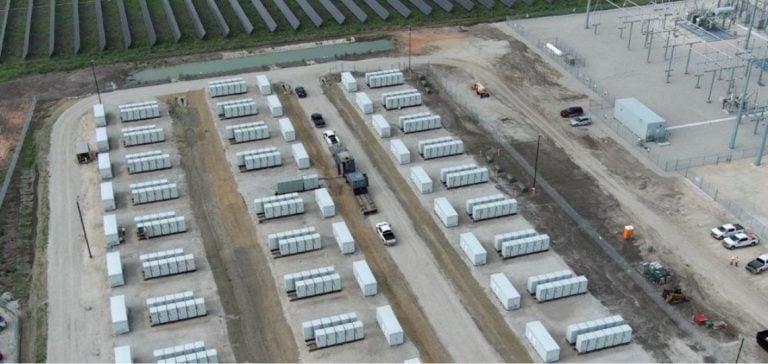Engie continues to expand its energy storage capacity in the United States, now reaching 1.8 GW by 2024.
This expansion is the result of an additional 1 GW of capacity added this year, reflecting a strategy to meet the growing demand for flexible energy and to offset fluctuations in intermittent renewable energies, such as wind and solar.
Storage systems, located mainly in California and Texas, play a crucial role in managing supply and demand on the power grid.
This fast-growing market is witnessing an upsurge in battery storage technologies.
In the U.S., these installations reach 20.7 GW of total capacity, according to data from the U.S. Energy Information Administration (EIA).
Engie holds around 8.7% of this capacity, largely thanks to the acquisition of Broad Reach Power (BRP) in 2023, strengthening the Group’s presence in energy storage infrastructures.
The central role of energy storage
As the energy sector moves towards greater decarbonization, battery storage is emerging as a strategic solution to the intermittent nature of renewable energies.
These infrastructures help stabilize the grid by storing energy generated during periods of low demand, and re-injecting it when demand increases.
This need for flexibility has become essential for American power grids, where the transition to decarbonized sources is accelerating.
Storage facilities also make it possible to avoid the use of thermal power plants, which are still used for their ability to respond rapidly to fluctuations in demand.
By offering a low-carbon alternative, these systems meet the flexibility challenges required to absorb the increasing power of renewable energies on the grid.
Strategic diversification
Engie, historically a gas supplier in France, has for several years been expanding its business into renewable energies and storage.
The acquisition of Broad Reach Power in 2023 marks a significant step in this transition.
This positioning in the North American market is part of a broader strategy aimed at achieving 10 GW of battery storage capacity worldwide by 2030.
The company also relies on a growing portfolio of renewable assets, with 8 GW of solar and wind projects in operation or under construction in North America.
This diversification enables Engie to meet energy needs while offering flexible, low-carbon solutions.
A response to the needs of the American market
The U.S. energy storage market is expanding rapidly, driven by public policy incentives and the growing need for energy flexibility.
The state of California, where Engie is particularly active, is one of the key players in this transition, with ambitious targets for reducing greenhouse gas emissions.
Texas, meanwhile, represents another key market, characterized by high levels of renewable energy production, but also significant needs in terms of grid stability management.
Battery storage systems are becoming an essential element in meeting the challenges of the US energy transition.
They offer effective solutions for balancing intermittent renewable energy production and fluctuating electricity demand, thereby reducing dependence on fossil fuels.
A future focused on energy flexibility
The rise of battery-based energy storage infrastructures is an unavoidable trend in the energy sector.
With a total capacity of 1.8 GW in the United States, Engie is one of the leading players in the storage market.
This strategy is in line with the logic of large-scale deployment of low-carbon technologies and energy flexibility, meeting both the expectations of consumers and the constraints of network operators.
The development of new storage capacities, coupled with the boom in renewable energies, bears witness to the structural changes taking place in the US market.
As electricity demand continues to grow, flexibility is becoming a priority to ensure energy security and grid stability.






















